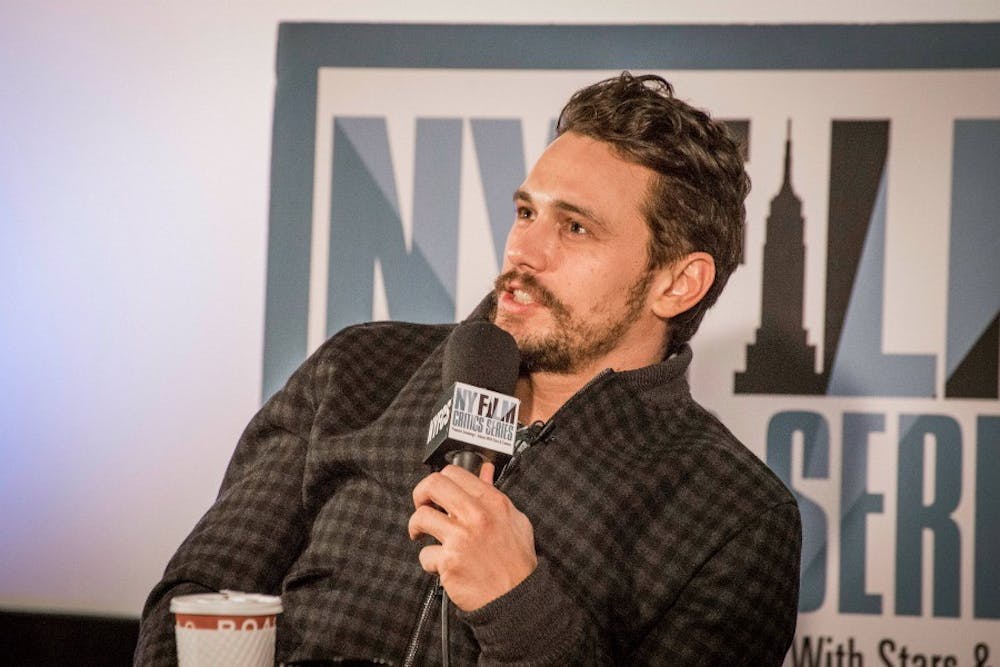By Devon Shuman, Senior Staff Writer
"You shouldn't be here."
These are the first words spoken to Jake Epping (James Franco) when he first travels back to 1960 in Hulu's "11.22.63," and it's a phrase he continues to hear throughout his time-traveling endeavors.
It's also what sets this miniseries, and the Stephen King novel on which it's based apart from other stories within the time-traveling genre.
Like any time-traveling tale, "11.22.63" has a strict set of rules. Al Templeton (Chris Cooper), Jake's cancer-stricken friend, explains that when you walk through the closet in his diner, you end up in 1960 at precisely 11:58 a.m. on Oct. 20. No matter how long you remain in the past, when you come back to the present, only two minutes will have passed since you left. Everything you do in the past can affect the present, but every time you re-enter the closet, everything resets.
But, while the past can be changed, it doesn't mean it will be easy. Because in the world King created, the past does not want to be changed. Whenever you get close to altering something big, the past resists, creating distractions and obstacles to hinder your progress. In fact, Al contracted his terminal cancer when he tried to go back and prevent the assassination of then-President John F. Kennedy. Now, he's asking Jake to complete this daunting task for him, and he warns Jake that the past is going to throw everything it's got at him.
Executive producer J.J. Abrams recognizes this stubborn past is part of what makes the story so unique and he takes advantage of that, carefully crafting each scene to help instill the idea that the past is watching, and it's not happy.
In one scene, Jake follows George de Mohrenschildt, a close friend of Kennedy's assassin, Lee Harvey Oswald, into a restaurant to try and gather information on him. Al tried this when he went back in time, but failed to overcome the past's resistance. As Jake moves further into the restaurant, Abrams overlays the scene with Al's descriptions of what to look out for, warning him to not get distracted by the fight outside and explaining how to get a table in the booked restaurant. But, once Jake is past the fire that eventually burned Al and forced him away, Jake is on his own. Suddenly, we become imbued with the paranoid anticipation of what the past will come up with next.
The pilot does a poor job of making Jake's decision to take on a mission of this magnitude believable. It may only cost him two minutes in the present, but he is still going to age three years. Furthermore, he'll be putting his life at risk, and no matter what he does, he won't know if Al's theory (that saving JFK will make the world a better place) is actually true until he's finished. And yet, it still only takes him a couple days to agree to fulfill Al's dying wish.
However, Abrams addresses this in the much slower-paced second episode, which sees Jake in Kentucky to stop the murder of the family of one of his future GED students. This side plot, in which Jake tracks the boy's violent father (brilliantly played by Josh Duhamel), doesn't cover as much ground as the dense pilot, but it does help explain Jake's convictions as he uses this endeavor to convince himself that the past is at least worth changing.
Character motivations aside, the world Abrams immerses us in is a beautiful one, filled with vibrant colors, oldies music and a nostalgic celebration of a simpler time. This ostensibly wonderful society, juxtaposed against the looming presence of the obdurate past, creates a perfect sense of uneasiness. Lurking behind every smiling face is the potential for disaster.
As for Franco, he once again displays his acting excellence. With many eccentric roles (Dave Skylark in "The Interview," Christian Longo in "True Story," etc.) under his belt, I had my doubts about his ability to play normal everyman, Jake Epping, but Franco accomplishes this with ease. He refrains from assigning his character any wild qualities and is able to inhabit a very ordinary persona while still establishing a likeable character.
Enjoy what you're reading?
Signup for our newsletter
"11.22.63" still has a long way to go. Although Hulu is producing it, the streaming service is choosing to release one episode per week instead of all at once. Hulu seems to finally have found the right medium for an adaptation of one of King's most massive novels. The television movie "It" forced too much material into a single film and the CBS series "Under the Dome" had to start making up new storylines to fill its seasons and turned into a sprawling mess. Like Goldilocks finding a good bed or bowl of porridge, Abrams and Hulu seem to have discovered a medium that is just right - an eight-part miniseries.
After just a couple episodes, it has already accomplished its main goal - immersing us in a past that does not want us there.
4/5 stars




